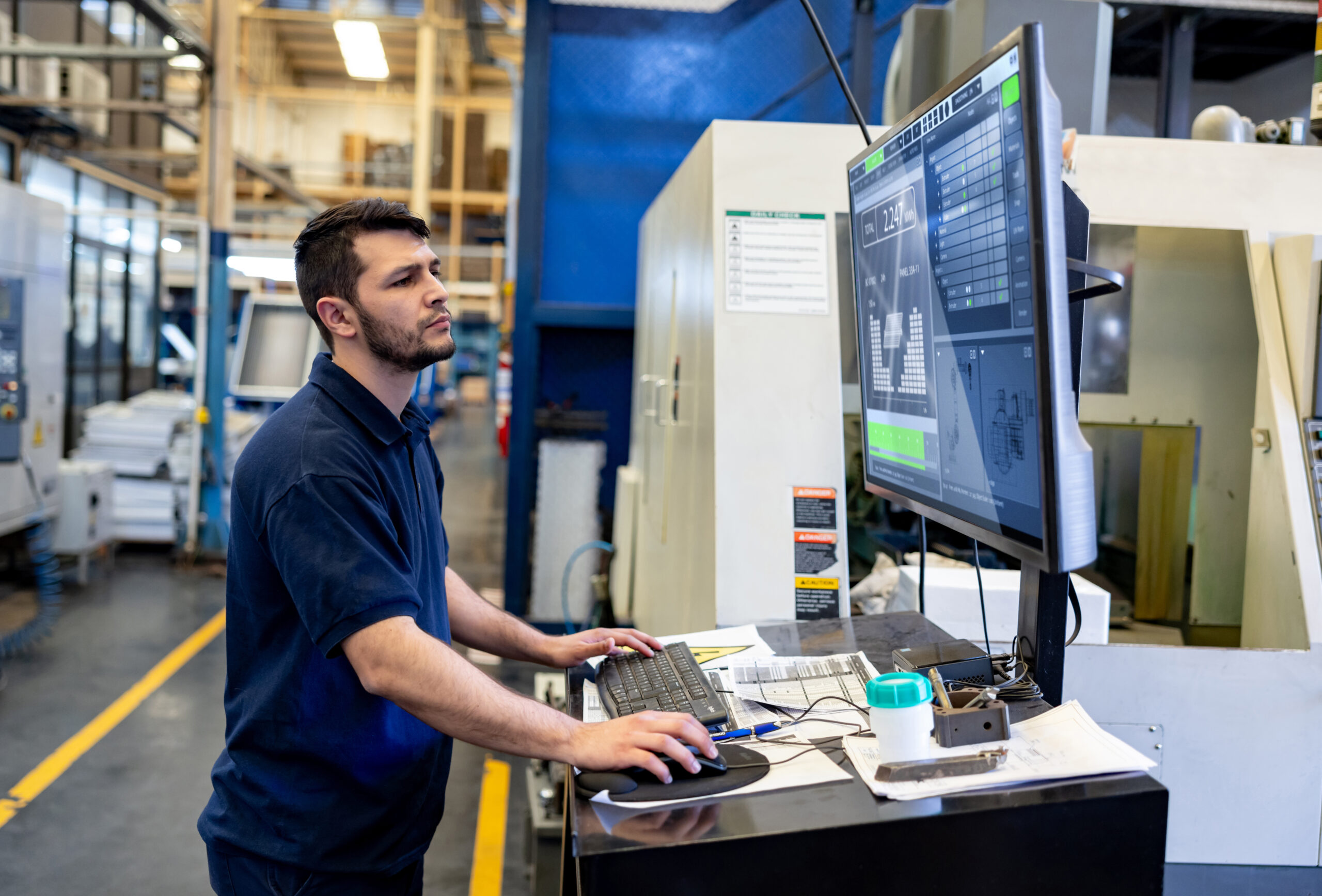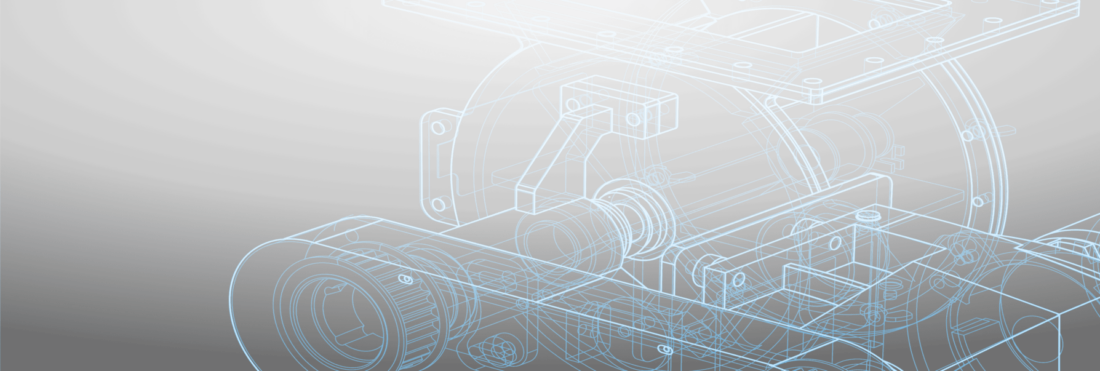
How Does an ERP Help Improve Business Operations?
ERPs are great multifunctional tools that improve your entire business, letting you run every department from the same centralized system to increase efficiencies, boost throughput, and reduce costs. From top-floor to shop-floor ERPs give you greater insight and visibility, making your operation run smoother and be more productive.
What is an ERP Software?
Before you can understand how an ERP can improve your business, you need to understand exactly what an ERP is. ERP stands for Enterprise Resource Planning, and at its most basic level, an ERP is software that connects and integrates all the different aspects of your business, and lets you streamline your processes, and share accurate information across your company.
The central feature of all ERP systems is a shared database that supports multiple functions and that can be used by every department in your organization. In real-world terms, this means that employees from across your organization can work from the same set of accurate data, and pull the relevant information from the system that they need to do their jobs more efficiently and effectively. ERPs eliminate entering the same data multiple times in multiple systems, as well as provide a single source of truth for your organization and allow information to flow more freely between departments.
Because all of your various business functions are integrated with an ERP, you can better manage your business as a whole, collaborate easier between departments, and get orders out the door, and into your customer’s hands, faster.
Which Industries Need ERPs?
All industries can benefit from an ERP system.
Not so long ago there were only a few ERP providers in the marketplace focused on large-scale enterprises, but today there are ERP vendors for every industry, size, and specialty. The best ERP for your specific business will be one that specializes in your business line and has the features you need to improve your business.
The best ERP for you will be unique to your business and will depend on your industry, your size, your budget, and your needs. What may be the best solution for a multinational organization will not meet the needs of an SME that is just starting out. Before investing in an ERP system, take a hard look at your business and what you need to get out of the software system — and then find the ERP that best suits your needs.
Why Are ERPs So Popular?
All good ERPs will help you increase your efficiency and reduce costs — letting you automate and streamline tasks and processes, as well as share information across your organization.
ERPs are invaluable in today’s modern business environment. Implementing an ERP in your shop will give you many benefits including:
- Delivering more jobs on time;
- Reducing inventory costs;
- Ending purchasing errors;
- Improving production efficiency;
- Accurate job costing;
- Better cash flow; and
- Lowering operational costs.
What Is Process Automation?
ERP systems are able to automate key business functions such as order processing, production, and finances, freeing up your staff to focus on more important tasks than data entry.
Manufacturers must ensure that the ERP that they select for their business includes technology-enabled automation of the business processes that are most important to them.
The Impact of an ERP System on Accountants
One of the biggest advantages of an ERP is that it is a fully integrated system that allows you to run your entire operation, including your accounting department, from a single system. Using one system makes accounting easier, and saves time and money, by eliminating the need to cross-reference and re-enter the same data into multiple systems and spreadsheets.
A fully integrated system increases the accuracy of your accounting and financial reports by eradicating upload errors, input errors, and potential timing errors, as well as lets you complete these reports faster—getting financial information into your hands quicker, allowing you to make better and more informed financial decisions.
An ERP can also improve how your accounting department does job costing. Job costing is important internally to your accounting team as it helps them to properly prepare income statements, but is also of major value to your organization—and your bottom-line. Precise job costing tells you how much each job you take on actually costs you, allowing you to identify where you can become more efficient and save on costs—which will save you money and increase your profit margins.
ERP for Engineering
ERPs can help engineers do their jobs more efficiently and effectively, reducing the amount of engineering time needed on each job you do. Engineers working in custom manufacturing environments rely on CAD software to create large and complex CAD models. But one of the most cumbersome and detailed tasks of the engineering department is to create a bill of materials (BOM) from a CAD model and then upload it into an ERP. A manufacturing-specific ERP can automatically link your CAD system with your ERP to allow this critical information to flow freely from your CAD system into your ERP, creating a BOM that is ready for procurement and production.
With a CAD-ERP integration, you will reduce errors, save time and money, and increase production speed. After all, you’ve recruited the engineers you have on staff for their design talents, not their data entry skills, so with a manufacturing-specific ERP they will be able to spend more time designing products, and less time on data entry and reconciling information between two disparate systems.
Project Management
At its very essence, an ERP is a project management and priority management system. A good ERP will provide you with all the tools needed to plan and track the progress of projects. With an ERP you will move beyond the whiteboard, to a more efficient and effective project management system.
ERPs allow you to effectively manage all milestones that need to be completed to get a job out the door on time. Milestone management provides a high-level representation of activities to be completed in order to deliver a job. At every step, you’ll know what task needs to be done and when, the progression of that task, and the exact stage you are at with any given job you have in your shop—all in real-time. Having an ERP means that you will always have complete visibility over your entire shop, allowing you to better manage and oversee all of your shop’s jobs.
Sales & Customer Relationship Management
Keeping customers happy is the most important thing you can do to ensure repeat business. If your customers like what you are doing, they are more likely to stay loyal—and recommend you to other businesses. Even though your customers will never directly interact with your ERP system, it is a vital tool in creating better customer experiences. As your ERP helps you to streamline and make your business more efficient, you will be able to offer more fair and consistent quotes, deliver a more consistent product, improve your delivery standards, and increase your customer service response times—leaving you with more satisfied customers.
Inventory Management
An inventory management system alone can’t effectively optimize your inventory—unless your inventory management system is integrated with the rest of your organization. This is where an ERP comes in. An ERP integrates your inventory management with the rest of your operation, making tracking inventory throughout your organization easy. An ERP system gives your staff instant access to a centralized inventory database that’s updated in real-time.
This lets you know exactly what you can or can’t fulfill, what raw materials you actually have on-hand, as well as gives you the confidence that what is recorded in the database actually matches what is sitting on your shelf, making not only production more efficient, but financial reporting easier as well.
Accurate inventory management can help you increase your overall efficiency as well. Employees can spend their time on other tasks instead of for example trying to locate one particular piece of stock. With an ERP system, you can automatically keep track of the inventory you use on each job, which will, for example, let you do better production planning as you know exactly the amount of raw materials you have on-hand, and what you need to order to complete a job. An ERP makes managing your inventory easier, which will make your entire operation more efficient.
Closing Thoughts
An ERP, with its ability to connect your entire shop, will truly become the workhorse of your shop, letting you improve your business operations and become a better, more efficient business.
Get your eBook Scared to implement a new ERP?
"*" indicates required fields



